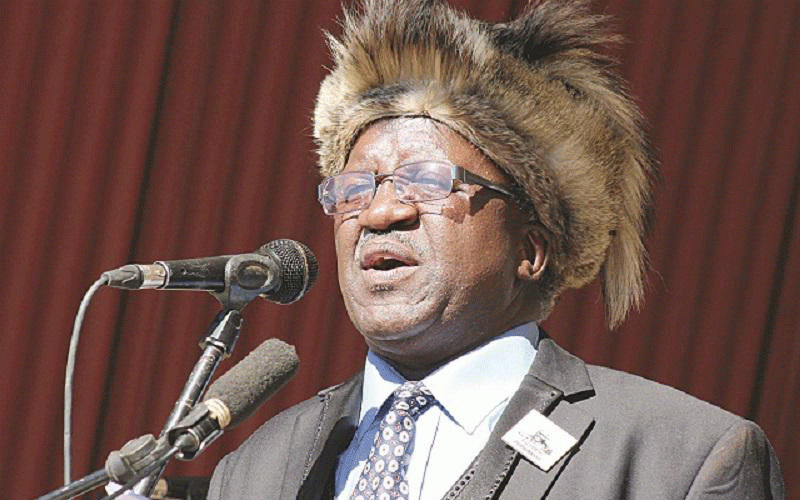
ZAPU leader Sibangilizwe Nkomo has lamented rising tribalism among Zimbabweans who are increasingly identifying themselves as either Shonas or Ndebeles.
Nkomo blamed the ruling Zanu PF party for formenting tribalism during the liberation struggle, adding that the scourge has been entrenched in communities, leading to serious divisions in society.
He challenged authorities to criminalise tribalism to ensure that citizens are united for the development of the nation.
Making the remarks in his new year address to the nation on Monday this week, he said: “Tribalism, like racism, its twin brother, is a construct of evil men with evil intentions. Unlike love, it is unnatural and can be taught and manipulated according to the whims of its designers.
“Tribalism as a socio-political resource is a capricious tool that groups people into polarised entities of ‘Us’ and ‘Them’ which becomes the foundation of the divide and rule system,” he said.
“Today in Zimbabwe, many have been brainwashed and taught by the Zanu PF tribalism system into believing that you are either Shona or Ndebele, contrary to the ideals of our forebears, who had successfully brought together and united all 16 mini or sub-nations (tribes) into one truly diverse rainbow nation under the banner of ‘Mwana Wevhu’, ‘Umntwana WeNhlabathi’.”
Nkomo said tribalism left the nation in a state of anxiety and confusion with people becoming preoccupied with trying to understand its damage and how to deal with it.
“We debate on it endlessly without coming up with a solution, while its architects are busy perfecting it with glee and satisfaction, realising that their creature is fulfilling its intended purpose.
- Divisions rock Zapu
- Anti-sanctions marches a gimmick: Zapu leader
- Zapu on verge of split
- Zapu to contest in 2023 polls
Keep Reading
“Tribalism has no friends and knows no boundaries; it can undermine and dehumanise those it deems ‘them’, while simultaneously brainwashing and indoctrinating those it deems as ‘us’. The only winners are the architects of the monster.
“The negative effects on ‘us’ and ‘them’ are generally the same as they are both left in limbo, at the expense of building true grassroots unity.”
Nkomo said: “Tragically, one is kept thinking and believing that the other is their enemy, when in truth their common enemy is Zanu PF, the creator of tribalism and hatred.”
He charged that Zanu PF was established on tribal emotions to divide Zimbabweans.
“Tribalism destroys lives, livelihoods, communities and homes. It is a hindrance to national progress and development. Indeed, it is an affront to national unity here at home and throughout our African continent,” he said.
Nkomo believes tribalism is a serious matter needing a definitive and lasting solution.
“This is how deeply I feel about the scourge of tribalism and maybe interrogating the possibility of criminalising it could be a starting point.
“Surely if draconian laws can be enacted for something as mundane as parking a car in the city centre or running a red robot, deterrent laws ought to be made against the social crime of tribalism,” Nkomo said.
Calling on Zimbabweans to learn at least five of Zimbabwe’s 16 vernacular languages, he said multilingualism can help lessen suspicions, mistrust and miscommunication, noting that for instance, the Gukurahundi Genocide had a lot to do with language from its planning right up to its implementation and quasi-military operations
“The logic behind multi-lingual proficiency for Zimbabweans is that language, as a child of the thought process and the parent of action, is everything, as it creates perceptions, facilitates positively or negatively, the way we communicate with each other.
“Tribalism, like Gukurahundi, must not be debated endlessly with no solution in sight. These issues have to be dealt with definitively for us to start rebuilding a united, respectable, progressive and happy nation. As we transition from 2023 into 2024, let us turn our backs on hate and prejudice," he added.







